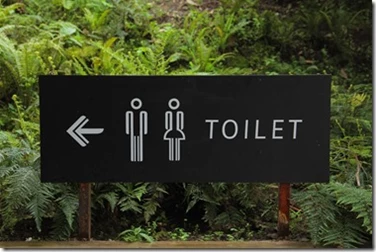 Some more free ASWB exam practice.
Some more free ASWB exam practice.
A mother and her 8-year-old son meet with a social worker after the child was referred by his primary care physician, who diagnosed the boy with encopresis. The boy makes it clear he doesn't want to talk about the condition and doesn't want to meet with the social worker. What treatment goal is likely to be MOST effective in reducing symptoms of encopresis?
A. The child will learn to identify and replace cognitive distortions that contribute to his feelings of shame.
B. The child's mother will establish a behavior plan that rewards him for using the toilet at regular intervals.
C. The child will learn to talk to his mother about his feelings about encopresis in family therapy.
D. The child will learn to talk openly about the encopresis to reduce his shame and embarrassment.
What's your answer?
The question tests for a combination of DSM and practice knowledge. First the diagnostic part: What's encopresis? Even if you've never encountered the word before, you can glean from the content of the answers a rough definition--"using the toilet at irregular intervals." (It's more accurately "the repeated passing of stool (usually involuntarily) into clothing.") That takes care of the DSM portion of the question.
The question asks about a MOST effective treatment goal. Let's take the answers one at a time:
For A. Replacing cognitive distortions might be effective in reducing the child's shame but won't likely reduce his behavioral symptoms.
B. Behavior modification--rewarding the child for regular toilet habits--is likely to reduce the child's symptoms.
C. While there may be a psychodynamic route to symptom reduction in this case, having the child talk about his feelings about encopresis in family therapy isn't likely to reduce his symptoms.
D. Talking about his symptoms might help reduce this child's embarrassment but won't likely resolve his encopresis.
The rationales for C&D are reenforced by the boy's unwillingness to participate in treatment. The correct answer is B.
Encopresis can be a big problem for children, causing embarrassment and shame, particularly in older children. Although talking about the encopresis with this child may reduce some of his embarrassment, it isn't likely to reduce his symptoms. Behavior plans can be effective in helping children develop regular toilet habits. Children with encopresis often avoid going to the bathroom and become constipated. Establishing regular toilet times can reduce their avoidance.
Make sense? Any childcare or family therapy you've done might also help with getting a question like this right. For behavioral changes, behavioral-oriented treatments are usually the best approach to try first.
Another way to get questions like this right: practice, practice, and more practice. We've got plenty of that at SWTP. Sign up to get started!

 Some more free ASWB exam practice.
Some more free ASWB exam practice.